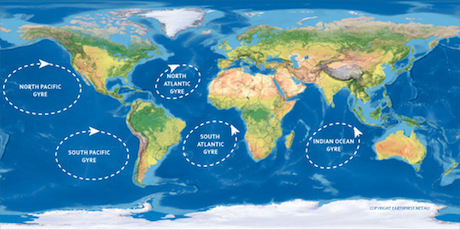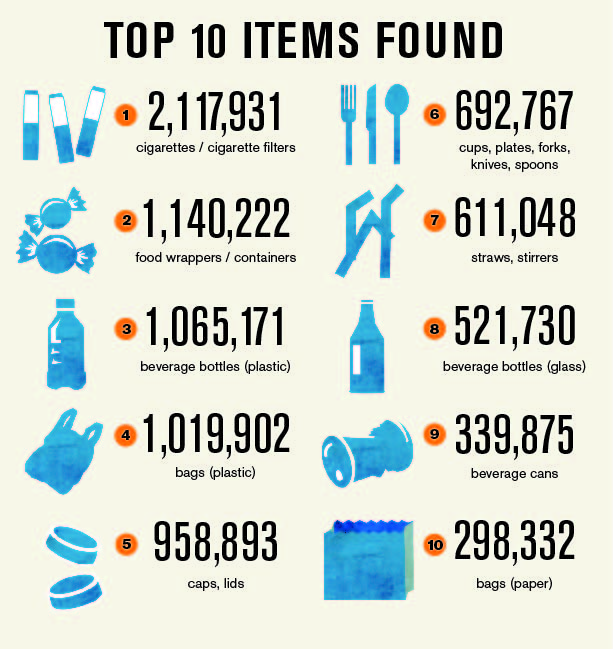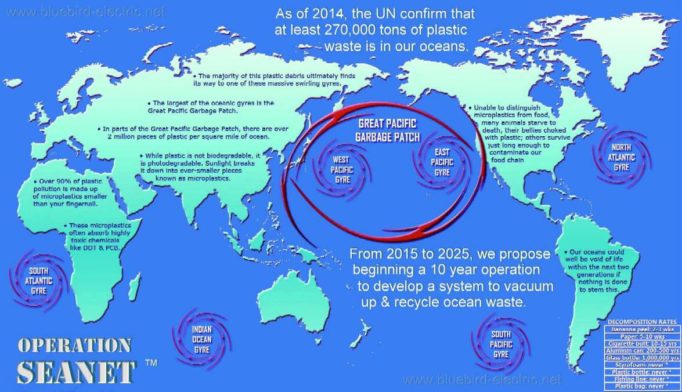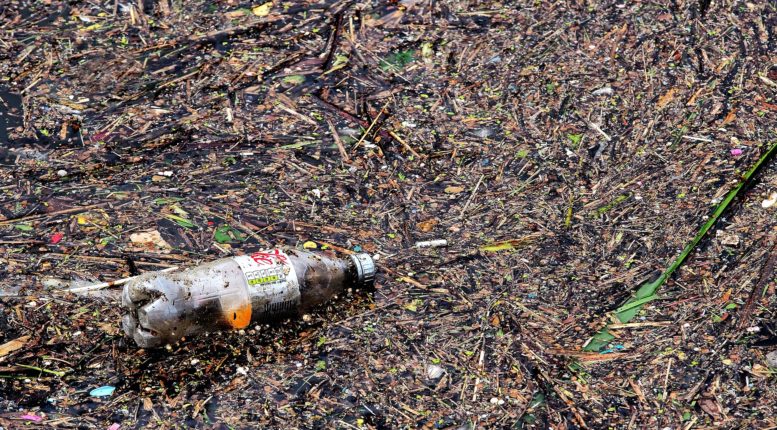We are killing the Earth with pollution. It’s true. Just have a look at the recent local news regarding Boracay Island and other notable tourist-resort areas in the Philippines. The problem is extensive and growing. But don’t stop there. Have a look at this problem on a global level.

The world’s oceans are awash in trash. Due to ocean currents there are vortices called “Gyres” that pull ocean trash in to form a swirling mass, of mostly plastic, causing fatal damage to aquatic, air born wildlife, as well as hazards to maritime traffic. It is also growing at an alarming rate.
The largest Gyre is located in the middle of the Pacific Ocean and is reported to be the size of the state of Texas in the United States. Putting that size into perspective, one can visualize driving a car at 100 KM an hour taking twelve hours to cross Texas, either going North to South or East to West.
The Philippines is #3 on the list of the most trash debris contributed to the Ocean as reported in 2010, neighbors China and Indonesia rank # 1 & 2, respectively.
Of all the debris identified plastic beverage bottles ranked 3rd, after cigarettes, filters, food wrappers or containers, and one step ahead of plastic shopping bags.

Something must be done to control, reduce, or virtualy eliminate this growing problem before it’s too late. Two things come to mind that could be done on a personal level in that if enough participation could be realized, a global control and reduction could be met. We have to think globally.
Eliminating plastic water bottles would be a significant start. Anti-smoking efforts are already underway so I decided to focus on the plastic water bottle issue.
Reducing or eliminating the personal use of plastic throw-away water bottles by making your own safe potable water at home using “Point of Use” Reverse Osmosis filtration or using a “Solar Powered” water distiller, is very possible although each has specific requirements that must be met.

Point of use Reverse Osmosis devices require 40 to 60 psi water pressure to operate correctly although they do provide unlimited safe drinking water 24/7.
Solar distillation requires sun, but the advantage is they are portable, cleanable, will provide safe drinking water where there is no water utility system, and can be moved to where/when the need is most required.
Disaster Relief to areas after a disaster – think the 3 most important supplies after a disaster: 1) shelter; 2) water; and 3) food. Give the folks something to do – Make water for everyone.
Either system is a viable option to consider instead of shipping cases of plastic bottled water that ultimately find their way into the trash cycle, and into the ocean.
Recycling plastic is also a viable path forward in controlling and reducing the mountains of waste we are currently building. Many countries have started replacing butyl rubber in asphalt used to pave their roads with recycled shredded plastic. The roads laden with shredded plastic are reported to be 60% stronger, and last ten times longer.
Using recycled plastic as a primary material stock could be an economic incentive for a company focused on building quality roads and highways.
In the big picture, we all have a part to play – the world’s environmental future depends on all of us making wise decisions for Planet Earth.
About the Author: Timothy Muelder is a retired Facility Manager of the U.S. Department of State.
